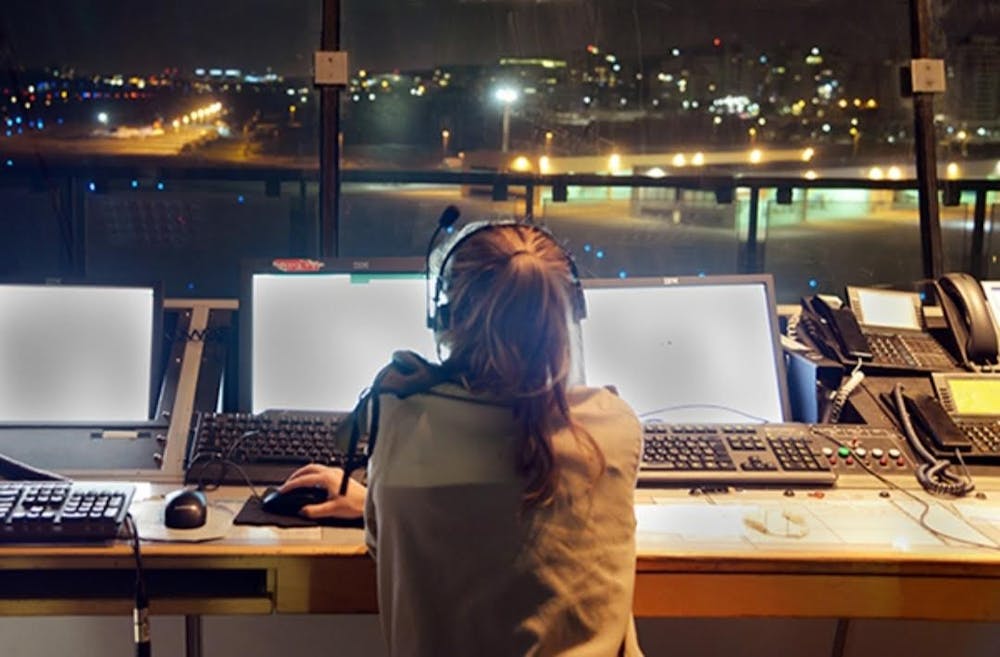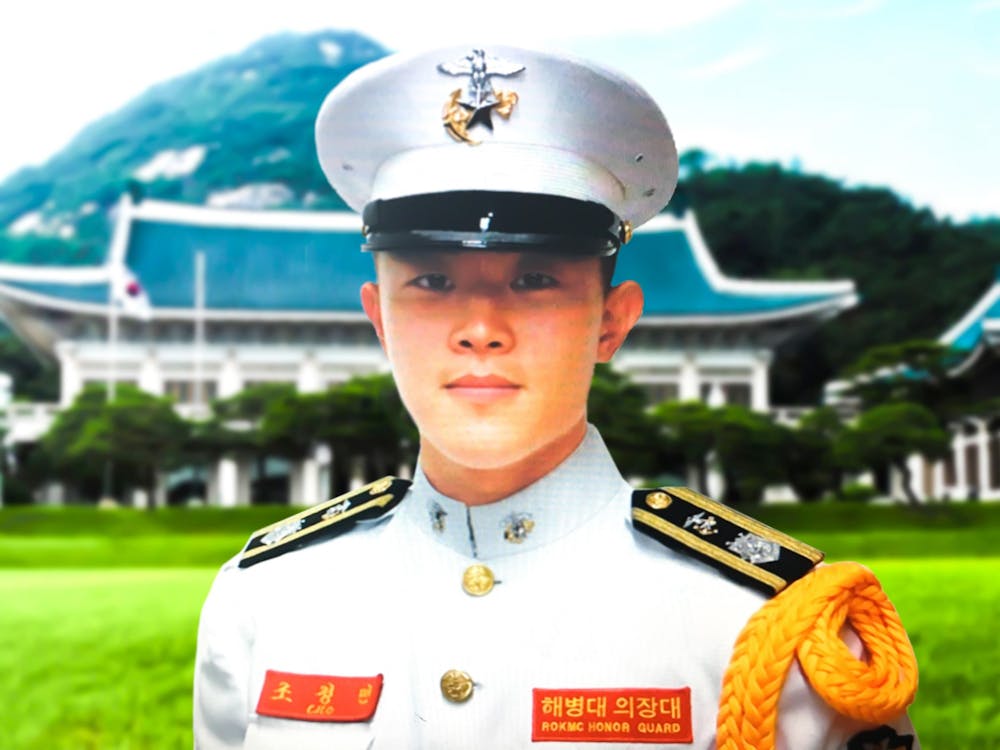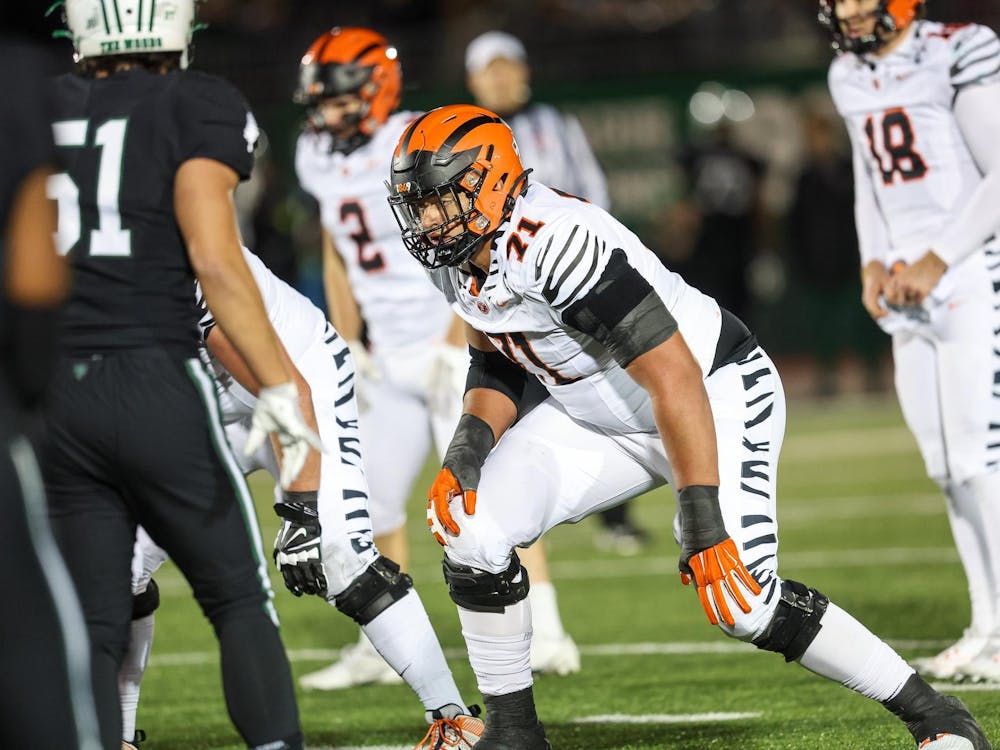The notion of standing “In the Nation’s Service” is built into what it means to be a Princetonian and drilled into students’ minds from the moment they set foot on campus. Yet, for a quarter of the University’s combined undergraduate and graduate population, “the nation,” which is referenced in the motto, isn’t the United States.
The 2018–2019 International Students Summary released by the Davis International Center noted that 12.4 percent of all undergraduates in the previous academic year and 25.3 percent of all University students were international students. Of the University’s 2,055 internationals, 16 hailed from Israel and 114 from South Korea — two nations known for their stringent military requirements.
Israel and South Korea both practice compulsory military service, meaning that all citizens who are able to serve are compelled by law to participate in the armed forces. In Israel, men are currently required to spend roughly two years and 10 months serving while women are obligated for only two years. In South Korea, the required length of service fluctuates between 21 and 36 months, depending on the member’s particular responsibilities.
“I’m not opposed to [compulsory military service], I think it’s good that it’s like that,” Dafna Yavetz ’23 said. During her time in the Israeli Defense Forces, Yavetz worked as an air traffic controller. “It’s good because Israel is a state where we need … people in the military. They could lose a lot of strong minds and talented people if [service] wasn’t mandatory.” She believes service helps “develop character” and facilitates maturity.

Dafna Yavetz ‘23 served as an air traffic controller in the Israeli Defense Force.
Photo courtesy of Dafna Yavetz
Similar to Yavetz, Adam Hitin-Bialus ’23 believes in the cause of the military. Still, when it came time to enlist, Hitin-Bialus, a former member of a communications unit in one of Israel’s artillery units, found himself struggling with the transition.
“My view of the military completely changed before and after,” he said. “Just after you finish high school … you feel like you’re in your prime. You’re great. But no, all you’re going to do right now is run around in the sand, shooting at targets. It stops the flow of studying, stops what you know, and takes you away from your friends.”
The transition away from civilian life is often a challenging one, Yavetz would attest. “It sucked too, at times, definitely. It was a trainwreck. Ups and downs the whole way through. I hated it sometimes, I was crying every night for a few months. Other times I was happy. I was lucky to leave really happy.”
Despite the difficulty inherent in having to adapt the course of one’s life to serve in the military, all four international veterans to whom The Daily Princetonian spoke — Yavetz, Hitin-Bialus, Jeongmin Cho ’21, and Avigail Gilad ’22 — said the experience was formative for their personal development.
The international student veterans interviewed shared the view that their service helped them appreciate and take better advantage of their time at the University.

“My time in the military was a lot of reflection and a lot of getting to know myself,” Cho said. “Because the environment that I was situated in in the military was drastically different from Princeton … it’s a pretty strict military hierarchy. In that sort of environment, it’s a strict order and ‘command-and-obey’ sort of environment.”
In his time with South Korea, Cho served as a Republic of Korea Marine Corps Honor Guard under the Ministry of National Defense.
In what order to complete their time in the military and in college depended on the students’ personal choices. Hitin-Bialus and Yavetz both entered the military immediately after graduating high school, whereas Cho and Gilad completed their first year at Princeton before returning abroad.
“After doing what the institution wanted for such a long time, now [at the University] I have the time to pursue my own personal interests and it made me more passionate about those,” said Gilad, a member of an intelligence unit in the Israeli military. “I think it also made me a lot more focused during my time here and experiencing that adult world outside of school to kind of hone in my experiences here toward exactly where I want to go.”
Cho said the challenges he faced during his service made him mentally “tougher” and help him now in navigating the struggles of college life.
“In my cookie jar of things I have gone through, I can reflect and say ‘I’ve already gone through these hard times in bootcamp,’ so a lot of the [...] struggles I feel like I go through here at Princeton are really nothing compared to some of the physical and mental struggles I went through in my time in the military,” said Cho.
Gilad believes her time in the military strengthened her connection to her home country.
“I’d say that definitely my time in the army made me more passionate [...] about my Israeli identity,” she said. “I think that you see the importance of what you’re doing so much so that you really invest in it everything. It’s your life.”
Hitin-Bialus spoke to the feeling of profound yet humble pride that comes with being a former service member.
“I would definitely, definitely recommend that people … go [into the military] and have that experience and feel like they have contributed back to society,” Hitin-Bialus said. “A lot of times during the military you don’t think of it this way, but looking back it’s great to know that I did something, even a small thing. You’re doing it. You contributed.”








